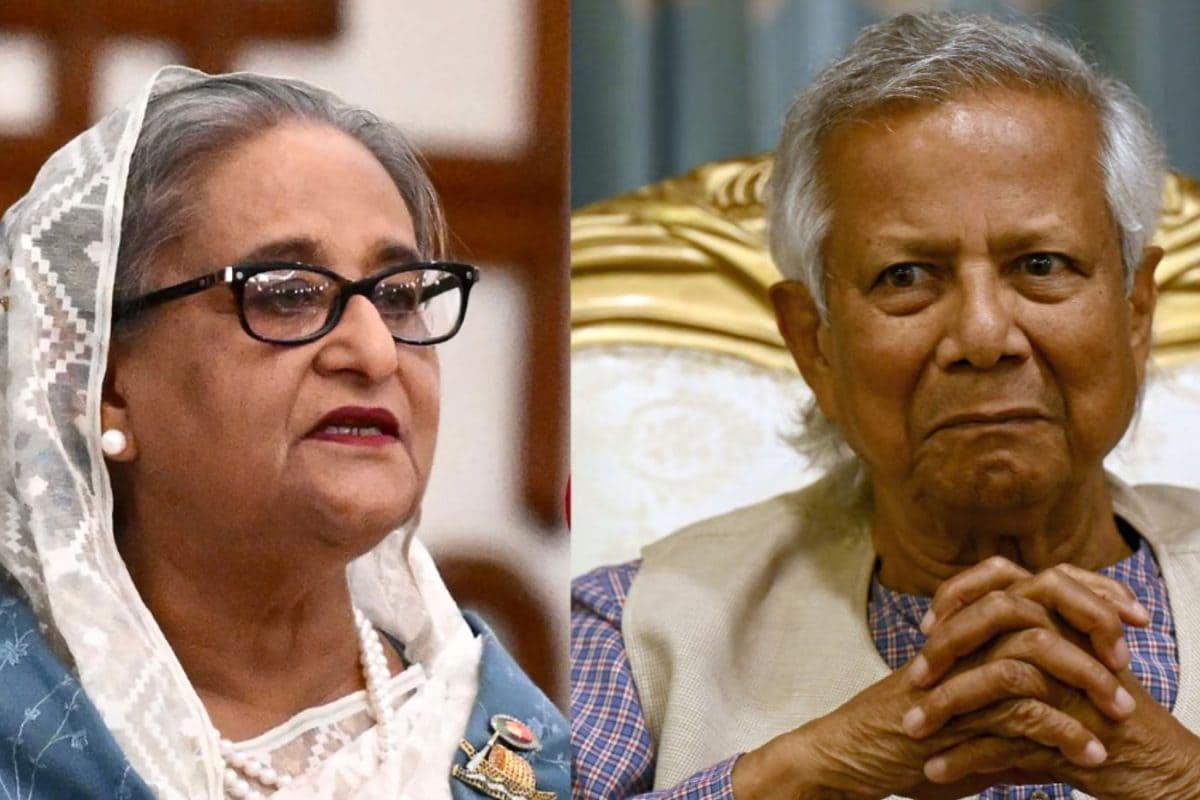Interpol Red Notice Sought for Former PM Sheikh Hasina
International International NewsPosted by AI on 2025-04-20 11:37:51 | Last Updated by AI on 2026-02-05 18:17:47
Share: Facebook | Twitter | Whatsapp | Linkedin Visits: 19

Where does a nation's leader go when ousted from power? For former Bangladeshi Prime Minister Sheikh Hasina, the answer was India, where she sought refuge last year following a wave of student protests that led to her removal. Now, Bangladeshi authorities are escalating their pursuit, requesting Interpol to issue a "red notice" for her arrest.
The protests that rocked Bangladesh last year and ultimately led to Hasina's departure were unprecedented in their scale and intensity. Students from universities across the country took to the streets, demanding reforms and expressing their discontent with Hasina's administration. The demonstrations, often met with resistance from security forces, painted a vivid picture of a nation in turmoil. The pressure mounted on Hasina until her eventual ouster, a dramatic turn of events that sent shockwaves through the country. Her subsequent flight to India marked a new chapter in the ongoing political saga.
The request for a red notice represents a significant escalation by Bangladeshi authorities. A red notice is essentially an international arrest warrant, circulated to law enforcement agencies worldwide. It requests the location and provisional arrest of a wanted individual, pending extradition, surrender, or similar legal action. While not binding on member countries, a red notice significantly restricts the individual's movement and ability to cross international borders. It puts pressure on the host country and signals the seriousness of the charges. The specific charges against Hasina and the eleven others named in the red notice request have not yet been publicly detailed by Bangladeshi authorities, adding another layer of complexity to the situation.
This development has placed India in a delicate diplomatic position. As a neighboring nation and a key player in the region, India will now have to navigate the complexities of this request from Bangladesh. The decision to honor the red notice and potentially extradite Hasina would carry significant political weight, potentially impacting the relationship between the two countries. Conversely, a refusal could strain ties with Bangladesh and raise questions about India's commitment to international legal cooperation. The case of Sheikh Hasina highlights the intricacies of international relations and the delicate balance that countries must maintain when dealing with sensitive political issues.
The future remains uncertain for the former prime minister. Will India comply with the red notice request, or will Hasina continue to find refuge there? The answer to this question holds significant implications not only for Hasina herself but also for the future of Bangladesh and its relationship with India. The international community waits with bated breath, as this unfolding drama continues to grip headlines and raise questions about power, accountability, and the delicate dance of international diplomacy.
Search
Categories
Recent News
- Manipur's New Government: A Swift Assembly Session
- Adani's Smart Meter Milestone: Powering India's Digital Energy Revolution
- Sabarimala Heist: Key Suspect Walks Free, Justice Delayed
- Supreme Court Orders West Bengal to Resolve Pending Dearness Allowance Dispute
- Justice Delayed: Elderly Man Finally Acquitted After Decades of Legal Battle
- Bengaluru's Power Outage: A Planned Disruption
- iPhone Users' Wi-Fi Woes: iOS 26.2.1 Update Backfires
- Nellore Rallies for Cancer Awareness on World Cancer Day
Popular News
- Navigating IPO Market Dynamics Amid Volatility and Regulatory Changes
- Massive Worldwide Microsoft Outage Disrupts Multiple Sectors
- Panjapur Bus Stand to Reshape TNSTC Routes
- తెలుగుదేశం పార్టీ - పేదరికాన్ని నిర్మూలించడంలో వాగ్దానం
- Universities Embrace Remote Learning Technologies Amidst Ongoing Pandemic